| |
Below are the steps taken to replace two 40 watt fluorescent bulbs with higher-output LED bulbs that will provide
75% in energy savings. Although the savings for this one fixture will be only about $7.00 (not used very long at any
one time) the first year, which is about what the bulbs and other hardware costs, once the rising cost of the electric
in future years is figured in, the savings after the first year will be quite significant. Since my downstairs office
alone has six of these fixtures, plus the two in this downstairs kitchen area, many more in my woodshop (8 fixtures,
each with 2x75watt bulbs or currently 1200 watts total), and other places in the house - many halogen bulbs in ceiling
of upstairs kitchen for example, the savings could be VERY significant.
But it's not JUST about the savings. It's also about the "doing." Doing things like this is good for the mind, body
and spirit, as it requires thought processes, a lot of movement up and down a ladder and about, as well as a sense
of satisfaction upon the completion of such a project.
beginning - one bulb out, one dim
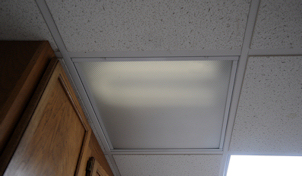
zoom
|
|
shown with cover off
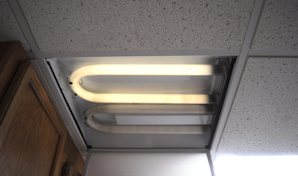
zoom
|
|
bulbs and ceiling panels removed
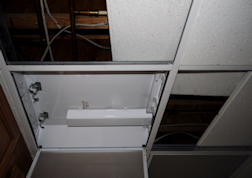
zoom
|
hole drilled for new bulb socket
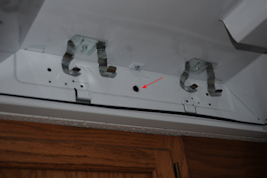
zoom
|
|
new "zip cord" being tinned
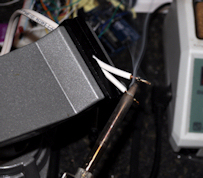
zoom
|
|
tinned
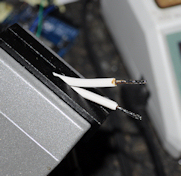
zoom
|
flux cleaned from soldered wire ends with alcohol
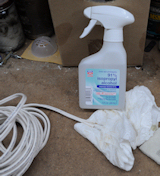
zoom
|
|
attaching wires to new socket - ribbed wire to silver screw
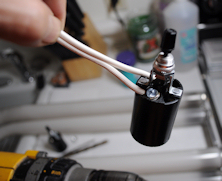
zoom
|
|
new wires connect to existing wires
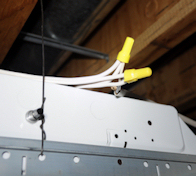
zoom
|
note ribbed zip cord wire attached to house white (common) wire
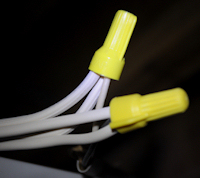
zoom
|
|
the new bulbs are 60 watts but use only 10 watts
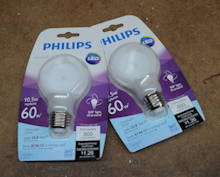
zoom
|
|
showing the two new sockets and bulbs installed
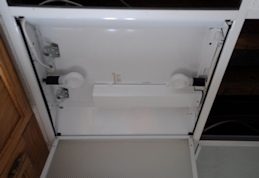
zoom
|
socket/bulb closeup
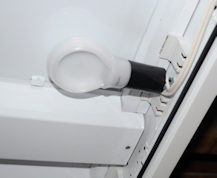
zoom
|
|
yah! - they work!

zoom
|
|
completed - much better
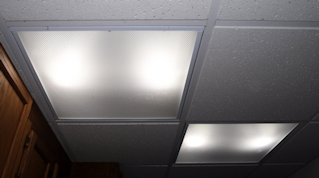
zoom
|
|
|














